Push to power up on energy action as poll reveals 73pc of voters blame Albanese for rising electricity prices
Australians want faster action on rising electricity prices and the transition to renewables, with poll revealing dissatisfaction with Albanese government.
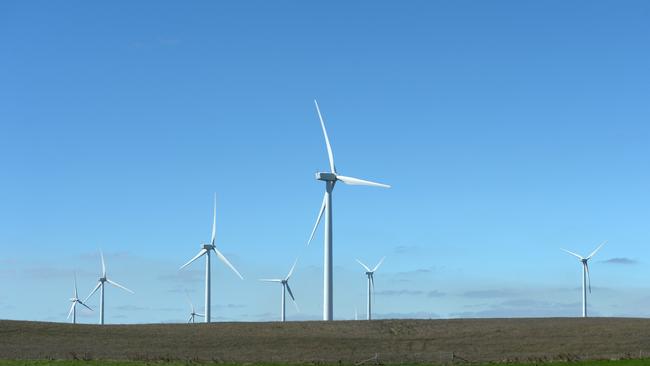
Australians want faster action on rising electricity prices and the transition to renewables, with more than 70 per cent of voters backing government intervention via price caps, triggers limiting exported LNG and a code of conduct that will force producers to keep gas in the domestic market.
In a worrying sign for the Albanese government, a national poll reveals 73 per cent of people hold them responsible for contributing to rising electricity prices – up 12 points since June.
The poll of almost 1500 voters, conducted on November 9-15, found while there was strong support for renewables, 44 per cent of voters felt the transition to renewable energy would “contribute to prices rises in the next few years”.
The same number believed the transition would be good for prices in the long term.
An SEC Newgate Mood of the Nation monthly tracking survey, to be released at a Tourism and Transport Forum NSW leadership summit on Friday, will show 53 per cent of voters believe Australia’s transition to renewable energy sources is “moving too slowly” compared with 17 per cent who said it was too fast.

The federal government, which is expected to announce a national response to energy prices in the next fortnight, is considering a suite of options to keep power prices low and protect manufacturers and households, including price caps and sweeping regulatory measures.
The poll showed the highest levels of support for government intervention were new price caps on electricity and gas prices (74 per cent), limiting the amount of LNG being exported overseas via a trigger (71 per cent) and a code of conduct for gas producers to make more domestic gas available (70 per cent).
Other measures include federal and state governments taking control of power generation from private companies (66 per cent), accelerating the shift to renewable energy (63 per cent), a windfall tax on gas companies (59 per cent) and direct subsidies to consumers funded by new government debt (58 per cent).
Fast-tracking new gas projects attracted 56 per cent support followed by banning new gas and coal projects, which garnered 36 per cent support.
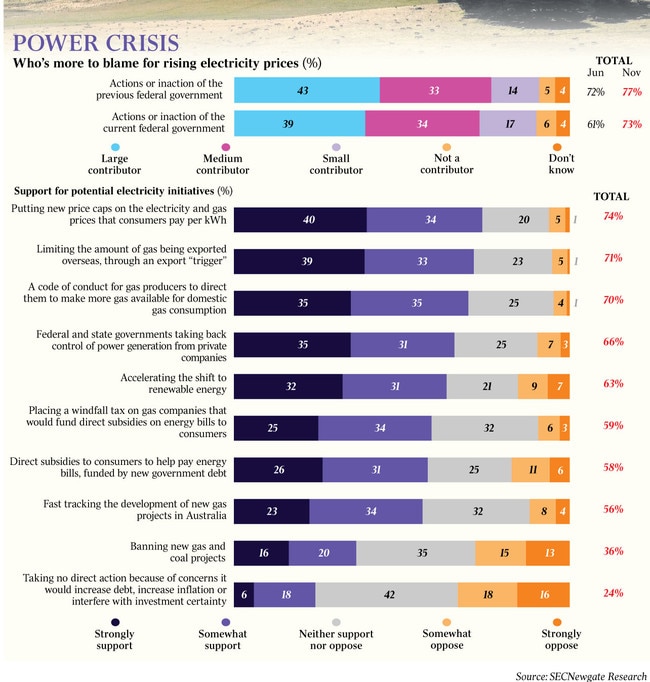
SEC Newgate research partner David Stolper said voters were “increasingly holding the current federal government to account … and wanting action on prices”.
Ahead of the government intervention, Mr Stolper said a majority supported price caps, domestic gas reservations, greater government control and boosted infrastructure investment to enable “more domestic solar export to the grid and for large-scale renewable projects like offshore wind farms and green hydrogen”.
“It is notable that Dan Andrews’ pledge to restore public ownership of electricity assets through a new state electricity commission in Victoria appears to be in line with community preferences; it will be interesting to see if this trend spreads to other state jurisdictions,” Mr Stolper said.
“An oft-overlooked aspect of cutting emissions is via changes to our homes and it is telling that the policies with the most support are for improving energy efficient standards for new housing and renovations and for programs to improve the energy efficiency of existing homes.”
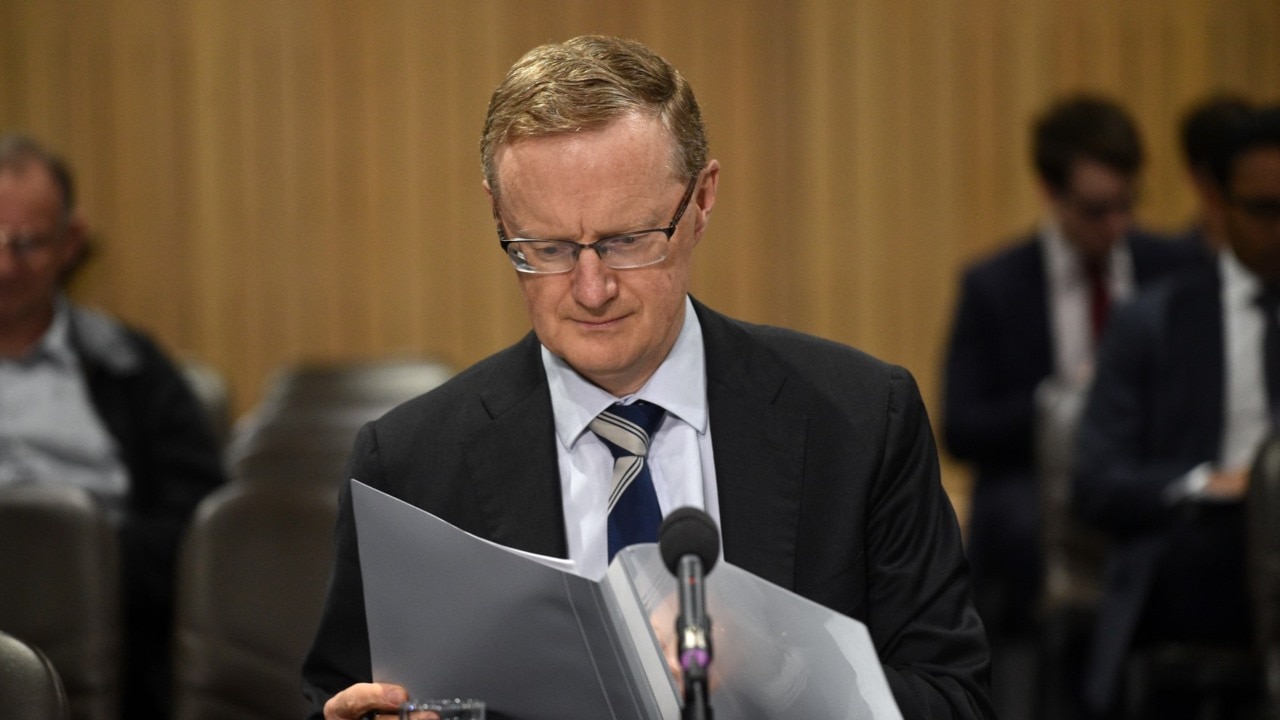
Mr Stolper said “as one of the top cost-of-living concerns, there is strong support for government action on rising electricity prices and for it to speed up the transition to renewables”.
“The community recognises there will potentially be higher energy costs for this transition in the short term but … believe it will be good for electricity bills in the long run,” he said.
While the Morrison government wears the bulk of the blame for failing to keep power prices low, only 50 per cent said the war in Ukraine was a major contributor to rising energy bills.


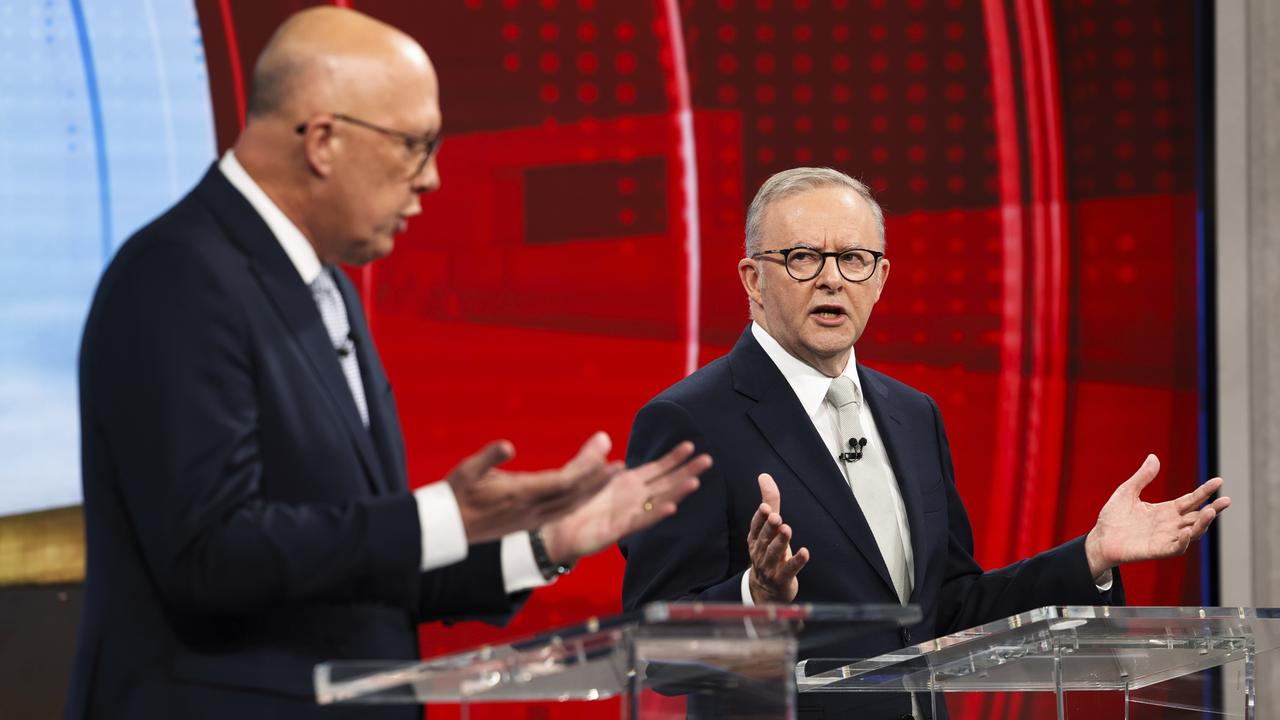
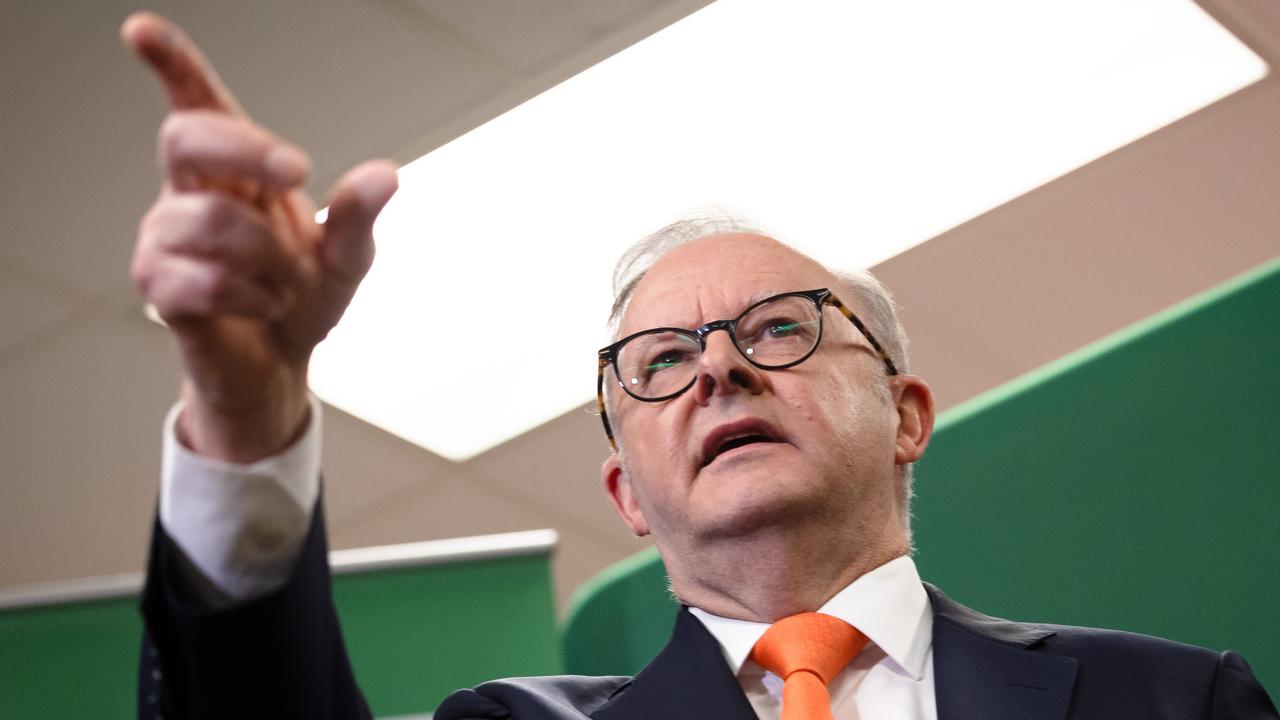
To join the conversation, please log in. Don't have an account? Register
Join the conversation, you are commenting as Logout